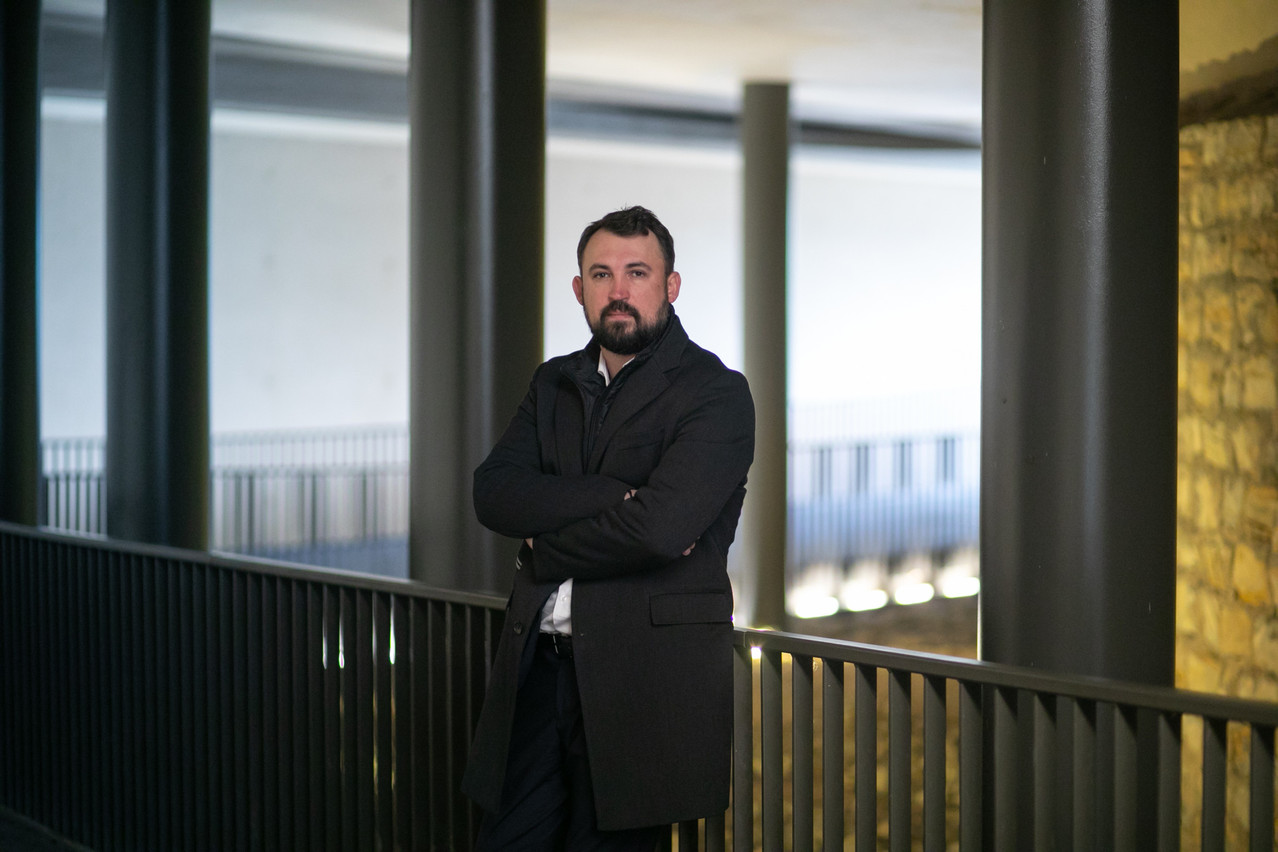Zharov was on his way back from holiday when he received the news that Russia had attacked Ukraine after a week of speculation over the build-up of troops along the border. “It was a big chaos,” he said of the first hours and days of emergency response.
Within two days, the LUkraine association sent its first shipment of humanitarian aid to the country. On 28 February, the first refugees arrived in Luxembourg. “No one was prepared.”
LUkraine organised private homes of volunteer families as shelter. The organisation rounded up protective equipment to send to Ukraine, driving materiel to the border and bringing back people who were stuck there. It worked with the education ministry to help integrate Ukrainian children into local schools as quickly as possible.
“The first three, four weeks, we slept maybe two, three hours. We just lived on adrenaline. Endless phone calls, emails. I understood then that human capabilities are expandable. Your boundaries are in your mind. You can do everything. You can do even more. And that’s what we did.”
Waning interest
LUkraine was founded in response to the annexation of Crimea in 2014. “We were trying to explain to everyone that that’s just the beginning.” Zharov said he anticipated a full-blown war but didn’t know when it would happen. Russia finally struck on 24 February 2022. “We were preparing for this moment, but anyhow it was a shock.”
Zharov has lived half his life in Luxembourg, moving here in 2003. His family has a business, he is married with a child. He had sworn to himself that if war ever broke out in Ukraine, he would go back to fight. The decision to remain in Luxembourg weighs on him. “We need the right people in the right places,” he said, adding that he is “more effective here.”
People got a bit tired and that’s quite human.
Projects that he is helping organise in Ukraine provide evacuation, psychological and medical services, mobile dentist cabinets, points where people can get food, electricity, internet access but also psychological support for PTSD, not for soldiers but for civilians and families who are traumatised. The group is also looking at supporting de-mining efforts.
“War is a monster that eats all the resources--human resources, financial resources, military resources. There is never enough.” While people in the early stages of the war approached the association asking how they could help, it has now become harder for the group to raise funds. “People got a bit tired and that’s quite human.”
Refugee question
In Luxembourg, LUkraine is pushing for more support for host families from the government. On the other hand, it wants better conditions for refugees who are still living in shelters and are struggling to move. They are subject to curfews, cannot invite people over and feel supervised.
“We have to develop a new strategy, a long-term strategy,” Zharov said. “We have to consider refugees as an asset rather than a liability, to invest in them. Some basic problems can be solved rather easily.”
Zharov acknowledged that asylum seekers for international protection face their own sets of challenges, including years-long delays for their refugee status to be recognised, a time during which they cannot work. The temporary protection status attributed to Ukrainians is different, he said. “The European continent has not seen this scale of war for the last eighty years.”
The word “temporary” is key, he said. Although the longer the war lasts, the more likely it is that people will want to stay. “People have changed their lives completely, and now they’re trying to plan something.”
No decision has been taken, in Luxembourg or at European level, on how to transform temporary protection into residency. However, solving these administrative puzzles isn’t a priority for the organisation. “There are people in need,” he said, adding that LUkraine is dedicated to helping the most vulnerable and least protected.
Luxembourg a “big example”
He also didn’t want the refugee questions to distract from the grand duchy’s political and military support of Ukraine. “What Luxembourg has done is simply great. It’s a big example for other countries,” he said. “On the political level, we had the full support from the beginning.”
Luxembourg has spent around €90m on supplying military aid to Ukraine and with no large army to draw materiel from is buying it on the open market to send to the country. Ukraine’s president Volodymyr Zelensky spoke by video call in Luxembourg’s parliament. Prime minister Xavier Bettel (DP) went to visit him in Kyiv. “It’s a big sign of collaboration and support and solidarity with Ukraine.”
We have motivation, bravery, resilience.
How long the war will continue is anyone’s guess. But for Zharov it won’t be won until Crimea is returned to Ukraine. He worries what terrors are yet to be revealed once the occupied territories are liberated.
The longer Russia drags out the war, however, the more Ukraine will rely on international support to continue fighting but also keeping vital infrastructure and the healthcare system alive, so that Ukraine can function in any way.
“We have motivation, bravery, resilience.” A year ago, the world expected the Ukrainian army to last only some weeks, Zharov said. It’s now been almost a year. “In solidarity, in unity we can change the world. So think big. I’m optimistic in this way. If you fall, get up, get up every time. Don’t give up.”


